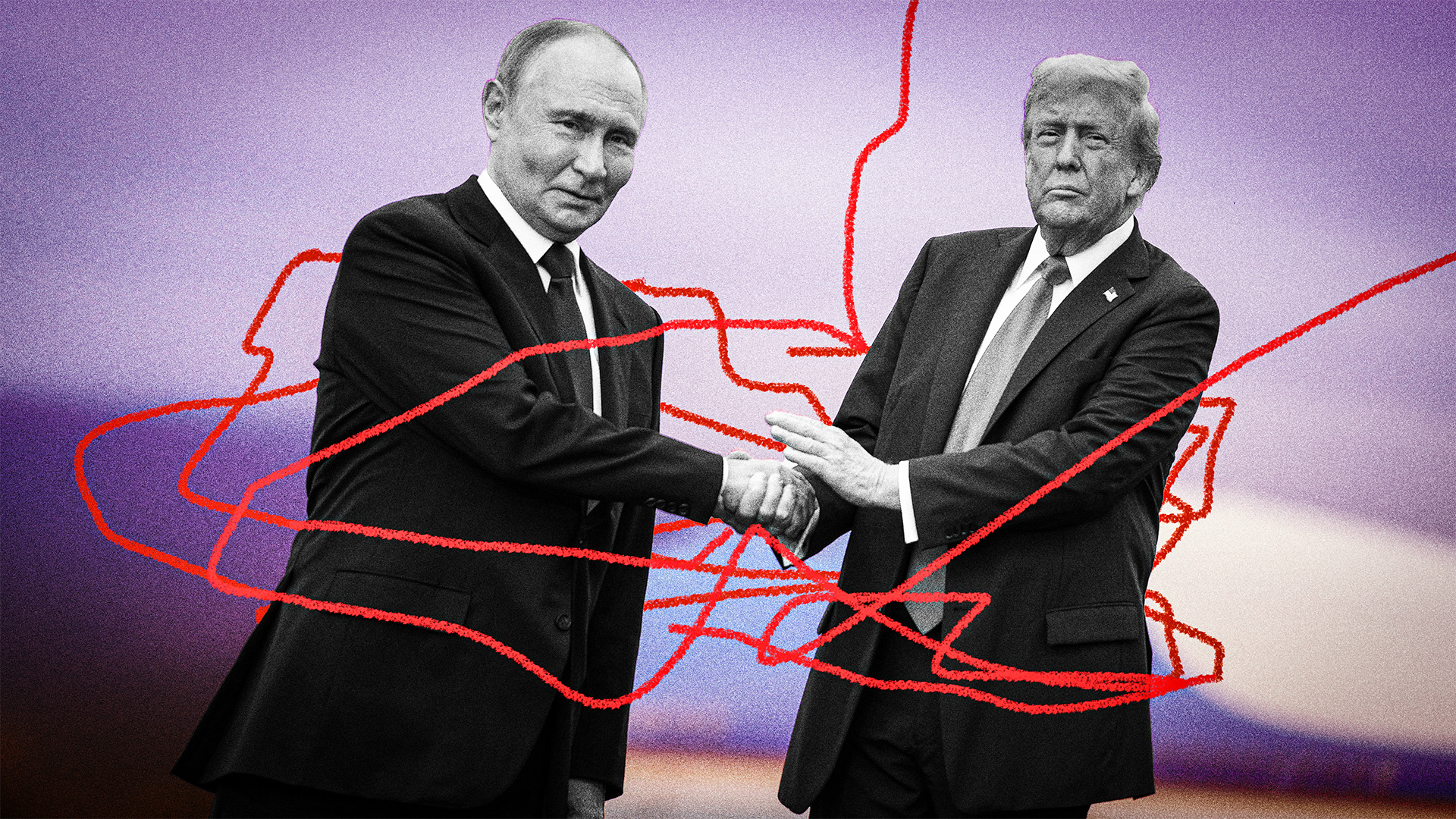Europe needs to get real on defence; Britain needs to get real on Europe
13 February 2025
Post
21 May 2011
3 minute(s) read
Recent Posts

178. Gavin Newsom: The Next President Of The United States?
What happened on a ridiculous midnight phone call between Donald Trump and the Governor of California? Why does Gavin Newsom believe the President will be crushed in the mid-terms? What is Newsom’s ... Continue2 March 2026
Posted by Alastair Campbell

507. The Ayatollah Is Killed – REACTION
With the confirmation of the death of Iran's Supreme Leader confirmed, where does this leave the regime? Who is being targeted in Iran's retaliation attacks and how have Iranians reacted? Is Trump's b... Continue1 March 2026
Posted by Alastair Campbell

506. Trump Attacks Iran: What Happens Now?
As Tehran launches retaliatory strikes against Israel and US military bases, how dangerous is this moment for the Middle East and the wider world? Are the attacks an attempt by Trump to shift attentio... Continue28 February 2026
Posted by Alastair Campbell

505. Are Trump and Putin Underestimating Ukraine?
On the fourth anniversary of Russia's full-scale invasion of Ukraine, what's the reality on the ground? Why is Trump still calling the shots on negotiations with Russia, given the huge withdrawal of U... Continue25 February 2026
Posted by Alastair Campbell

Alastair Campbell’s diary: I’m in Ukraine, a nation let down by America
But on the fourth anniversary of the war, Ukrainians want more than just warm words. They want real help to end this war. Trump isn’t going to give it – so it’s down to us... Continue
24 February 2026
Posted by Alastair Campbell

504. Is Trump Losing His Tariffs War? (Question Time)
Will Trump escalate his global acts of aggression in response to the dramatic Supreme Court ruling? How will the arrest of Andrew Mountbatten Windsor change the course of British royal history? Will L... Continue24 February 2026
Posted by Alastair Campbell

Alastair Campbell’s diary: Trump’s Ukraine delusion
After four years of war, Putin isn't winning. So why does the president insist he is?... Continue
23 February 2026
Posted by Alastair Campbell

23 February 2026
Posted by Alastair Campbell
Agree. All discussion is about how bad things are at present and how we dig ourselves out of the hole we’re in. The coalition has no incentive to run the discussion any other way.
Hopefully there is going to be an upswing and Labour has to make that it’s territory.
Atb
John
I will start with Vince Cable´s interesting interview with the Guardian.
The business secretary says that the political class has not yet prepared the public for the scale of problems facing the UK economy. British economy declined 10% below trend. And the balance of the world economy is changing.
Britain´s economic model has failed. Big structural changes are needed.
Coalition´s credibility depends on whether it is successful in its efforts to eradicate the structural deficit.
Mr Cable is not optimistic about growth in the short term. And over-confidence can be a problem – government cannot control everything in the economy.
It must be news to Mr Osborne that “there is a lot of flexibility built into current policy”. Mr Cable even mentions basic Keynesian stabilisers and says that if the economy slows down, deficit temporarily has to rise!
We are really entering a “new phase” in coalition politics.
Ed Miliband also writes in the Guardian.
He wants to set out a clear national mission. Providing louder opposition is not enough. Superficial repositioning is inadequate.
Clear and positive vision is needed.
We need a different kind of economy which is less reliant on financial services. We need better capitalism. We need to look beyond the bottom line.
Labour´s future lies in the synthesis of New Labour and Blue Labour.
Maurice Glasman puts faith in working-class values. The Labour tradition is richer than recent economic utilitarianism and political liberalism.
Blue Labour is trying to renew the party as a powerful force for good. Politics of common good are needed. Mutuality and solidarity are needed.
Ethical vision of a humane society on which Labour was founded in 1900 is still relevant today.
Finance capital pursues the maximum returns on investment. Human beings are turned into commodities. Labour must be against this.
But Blue Labour has no nostalgia about old Labour and no illusions about the new. Blair and Brown were naive about finance capital and the City.
A conception of globalisation was understood entirely on terms set by finance capital.
The starting point for Blue Labour is that the banking crisis of 2008 marked the end of New Labour´s economic model. This opens up the possibility for renewal.
We cannot build economy on consumer spending, a housing bubble and an overweight banking system.
Ed Miliband said in his Fabian speech in January that he is opposed to the domination of capital.
Blue is small-c conservatism. Labour needs to value tradition more. Labour must stand up to the power of market forces.
Pay gap is widening to Victorian levels. Top earners´ slice of national income will rise from current 5% to 14% by 2030.
The time for the Robin Hood tax has arrived.
A demand for responsibility has emerged as the dominant theme from submissions to Labour´s policy review.
Voters are frightened by the crisis in the market economy, but have little faith in left´s ability. This must change!
Labour must focus on establishing political credibility.
But talk of generating “a vision” at the present time ignores the fact that the narrow escape from fiscal meltdown and the cuts will dominate voters’ consciousness for years. The only viable “vision” is how to minimise their impact..Not very inspiring or uplifting perhaps, but at least honest. The Big Society or health reform (both of which will cost and be funded how exactly?) or “optimism” (based on??) are just hypocritical distractions from the central, relentless drive to extricate ourselves from the mire.Then maybe you can start talking the politics of vision.
Hi Alistair. I agree that Labour needs to show the British public that it has a plan for the future that will address and actually tackle many of the issues that beset this country, namely the economic struggle, but his position on the ‘left’ (if that even exists in British politics) is not a viable option for the British people. Even with a clearer sense of direction, Ed Miliband’s policies will not ‘win back’ many parts of the electorate, especially middle England. The reason, as of course you know, that Tony Blair was so successful was because he appealed to a far wider cross-section of the public than Ed Miliband will ever do. I believe quite firmly that Labour needs to follow the guidance laid down by Blair in his book and in various other interviews: it needs to retain New Labour. It was New Labour that won three general elections, not the traditional Labour that sat by and watched for eighteen years as Thatcherism dominated our political lives. A clear vision for Britain’s future? Yes. Ed Miliband to deliver it? No.
My immediate thought on Ed Millibands piece was “well, get on with it!” not inspiring and mirrored to rhetoric – at the time welcome – Nick Clegg treated us to in the pre election debates. The media are not scrutinising Coalition activity. The pulic, through petition, letter writing, protests and even voting (?) are not being heard. What to do?
I hope Ed M talks long and hard with Peter Mandelson about manufacturing and public intervention. Both Cable & Osborne have shown that they have a completely empty box on how to rebalance the economy. The news yesterday from Tata Steel confounds government policy – they do not expect construction to return to 2007 levels for five years and thus will reduce jobs by 1500 (around 25% of the jobs they have in that sector). Growth and intervention to support manufacturing growth must be central to Labour’s strategy. The key must be to construct a narrative that the South of Britain can tune into. 1500 lost jobs in Lincolnshire and Teesside means lost builders jobs in Surbiton and Hampshire.
Excellent post Olli I. Very well observed.
Most people simply don’t want “old Labour” I know I certainly don’t.
Ed M got off to a very bad start last year, by trying to distance himself from Tony Blair and New Labour. I was incensed by his remarks and so were many other people.
I simply want a Labour government that doesn’t block the aspirations of potential wealth and job creators, particulary in industry. But also a compassionate Labour government that doesn’t forget the needs of the most vulnerable members of society. Surely that’s not too much to ask for or expect?
Having found Miliband’s Guardian piece mostly vacuous waffle, I read the full speech to Progress. I was especially interested in his concept of a “better capitalism”. What would that look like? How could it be achieved?
All I found was dozens of verbless sentences (of which previous Labour leader does that remind me?) and the aspiration for a capitalism “that is true to our values as a country.”
And which values would those be, for God’s sake? Right wing Tory values? Left wing Labour values? Or our pleasingly vague friends: tolerance, fairness, compassion? They are not always evident in the bar of the Dog and Duck or the pages of the Mail and Sun and are hardly relevant to any profit-driven enterprise.
And how does a Government imbue capitalism with the values of one country anyway or build a ‘better capitalism’ when we have a global capitalist economy?
I’m sorry, but this speech was just meaningless tosh, reminiscent of Blair at his worst.
Fully agree.
‘They are running a programme founded essentially on an exaggeratedly negative view of what went before, a point Polly Toynbee makes in the column alongside Ed’s’
The Tories would find it harder to do this if people like Toynbee and Miliband didn’t spend so much time themselves dissing the Labour record. A very dangerous thing to do, especially when you have no credible narrative about the future to set against the Tories’ dismantling of the state, ‘in the national interest’, of course.